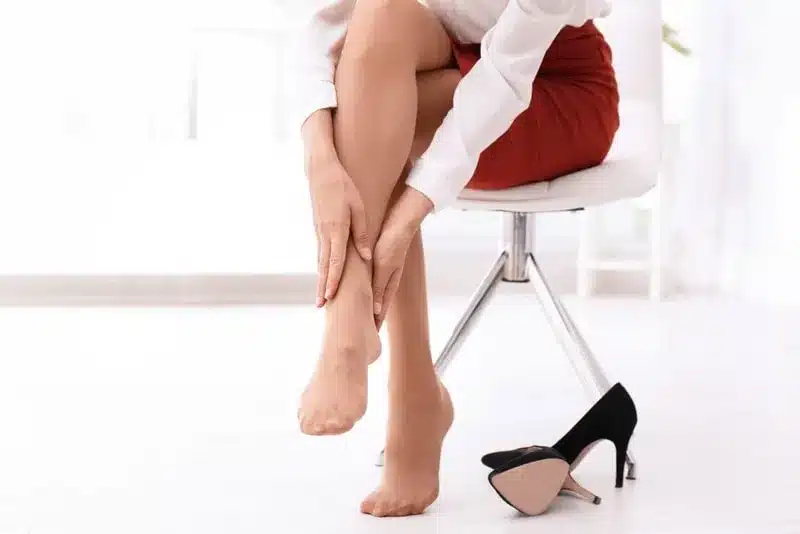At Tennessee Vein Center, we understand the worry that can come with new or worsening vein disease symptoms, especially if they take a toll on your health or everyday life.
From spider veins to deep vein thrombosis, we diagnose and treat all types of vein diseases. Our highly-trained team of venous experts is experienced in advanced non-surgical alternatives and provides innovative care to help treat various vein diseases.
Let’s explore vein disease in further detail, including an answer to “What is vein disease?”, an overview of the signs of vein disease, and a deeper look at exactly what causes vein disease.

What is Vein Disease?
Veins are the vessels that carry deoxygenated blood from the body’s organs and tissues to the heart. When they stop working correctly, vein disease can occur.
Most often, vein disease affects the leg veins but can occur anywhere in the body.
There are several different types of vein disease, including:
- Spider veins
- Varicose veins
- Deep vein thrombosis
- Chronic venous insufficiency
What Causes Vein Disease?
In short, vein disease is a venous condition caused by veins not functioning as they should.
Healthy veins have valves that keep blood flowing to the heart efficiently. However, when venous insufficiency develops, the valves stop working correctly.
When this occurs, blood essentially flows backward and pools in the inferior veins, causing painful and unsightly symptoms such as the appearance of spiderweb-like veins on the surface of your skin.
According to the Cleveland Clinic, nearly 1 in 20 adults are affected by chronic venous insufficiency or vein disease.
Vein Disease Symptoms
Vein disease includes a range of signs and symptoms, which can vary depending on the type and severity of the condition.
The most common symptoms of vein disease include:
- Swelling, especially in the lower legs
- Leg cramping, especially at night
- Tired, heavy legs
- Changes in the appearance of your skin
- Aches and pains in the legs
- Restless legs
- Spider veins
- Bulging veins just below the skin’s surface
- Loss of hair on the lower legs, feet, and ankles
- Skin infection
- Spontaneous bleeding
- Leg ulcers
If you are experiencing signs of vein disease — varicose veins or spider veins, for example — seeking medical attention for a proper diagnosis and a thorough and personalized treatment plan is essential.
Vein Disease Risks
It is important to know that anyone at any time can develop vein disease, but you are considered at an increased risk based on the following factors:
- Age
- Genetics
- Gender
- Pregnancy
- Obesity
- Smoking
- Those living with other vein conditions
- A sedentary lifestyle, including extended periods of standing or sitting
If you are experiencing signs of vein disease — varicose veins or spider veins, for example — seeking medical attention for a proper diagnosis and a thorough and personalized treatment plan is essential.
Reduce the Symptoms of Vein Disease with Minimally Invasive Treatment in Tennessee
Your vein health matters to us.
If you’re living with vein disease or are experiencing new or worsening symptoms consistent with a vein-related condition, our team of caring and compassionate experts at the Tennessee Vein Center is here for you every step of the way.
Schedule an appointment today at our Knoxville area vein center today for further care, including comprehensive diagnosis and minimally invasive treatment options for your vein disease.